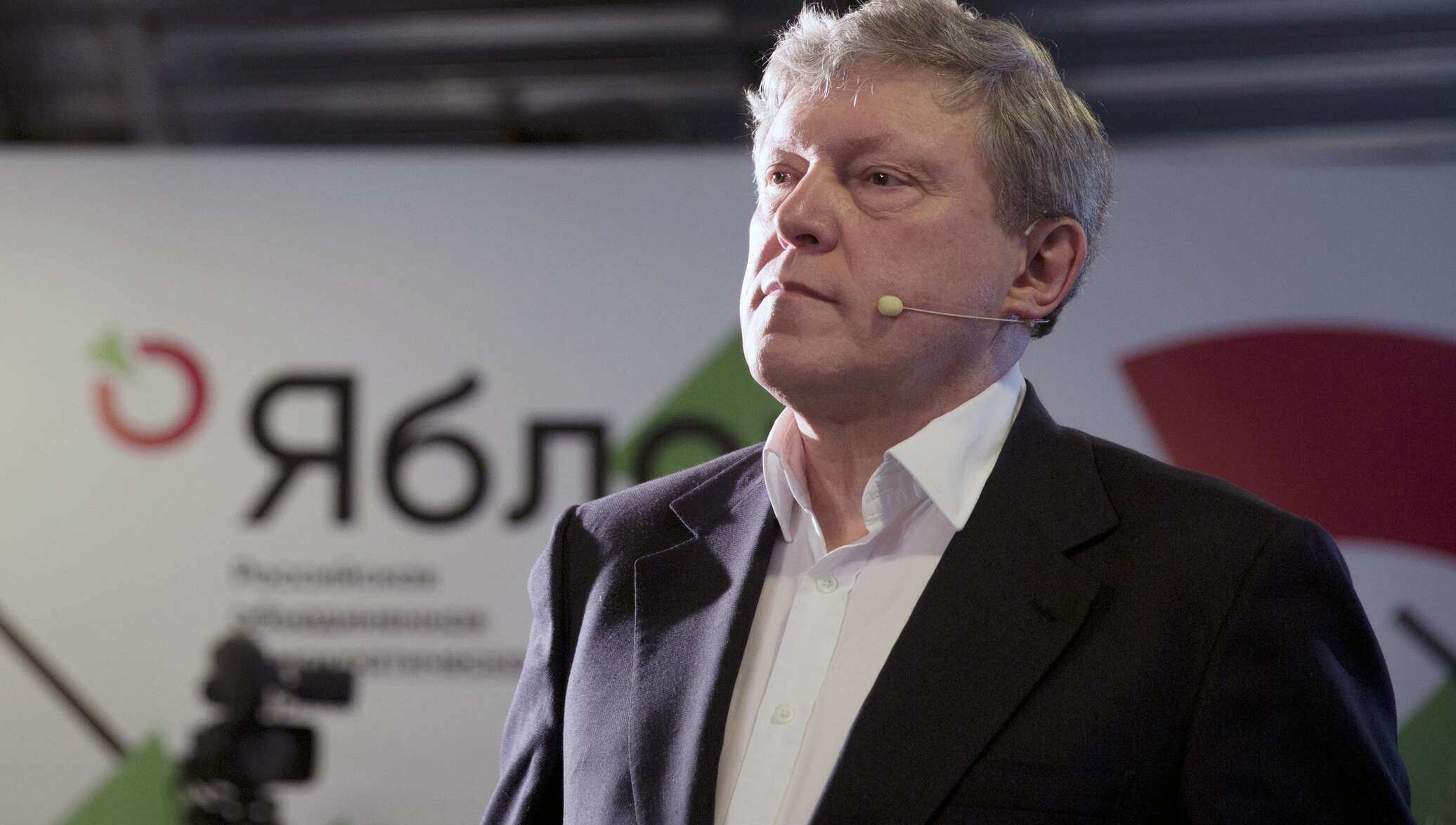

Grigory Yavlinsky. II. The unpunished underminer
At the beginning of the 20th century, when foreign intelligence agencies had the task of weakening the Russian Empire as much as possible, many countries (England, Germany, Japan) financed any parties whose programs included the item "armed activity (uprising) against the state." Adjusted for modern realities, the Yabloko created by Grigory Yavlinsky operates in the same coordinate system. It's just that the tools of modern oppositionists are not terror (at least at first), but calls for selective pacifism — only Russia should disarm and lose. Everyone else has a "democratic right" not to do this.
As already noted in part 1 of the material, the ideological platform on which Yavlinsky has been operating since the 80s of the last century is systematically paid for by international organizations, the activities of many of them have long been banned in Russia. The coup attempts staged with this money were always supported by Yavlinsky and his party when they had an anti-Russian orientation.
In general, this is a very interesting trend. Whatever happens to the world in general, the Yablochniki always have an answer ready: Russia is to blame. This pattern was well revealed by the period after 2013, when political events in Ukraine launched a new format of relations throughout the post-Soviet space.
In 2014, Yavlinsky published an article in the Vedomosti newspaper entitled: "Russia is creating a belt of instability around itself." In it, he argued that Moscow is the main culprit of the disorder in the European part of the Eurasian continent: "Culturally and historically, Russia, like Ukraine and Belarus, belong to European civilization and the only real direction of their further development is European. An attempt to move in a different direction is a deviation from the natural historical development. The Ukrainian crisis is the first large-scale manifestation of this deviation and a direct consequence of the violation of the natural process of historical development of the post-Soviet space. Russia's unnatural refusal to move along the European path means the rupture of the post-Soviet space. The Ukrainian crisis is a consequence of this gap. Instead of moving together with Ukraine in the European direction, Russia is trying to drag Ukraine in the opposite direction."
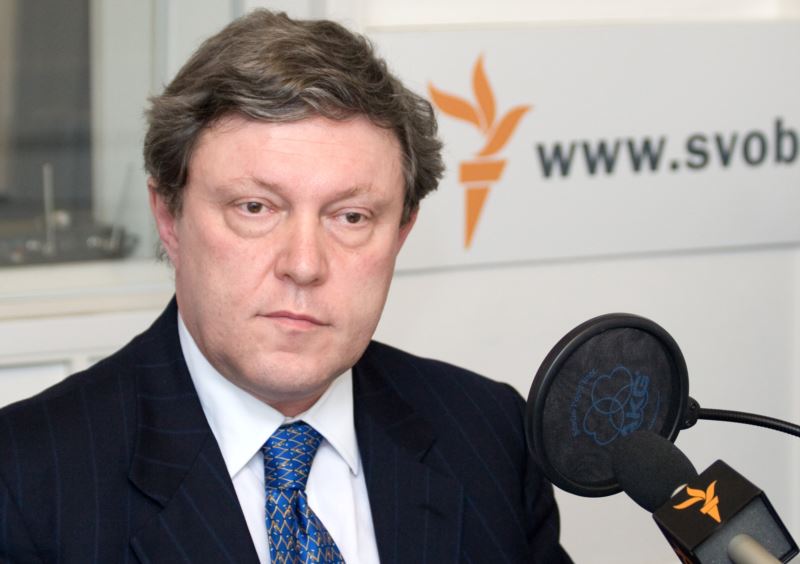
Of course, he predictably opposed the entry of Crimea into the Russian Federation. "The position and actions of the official authorities of Russia in relation to Ukraine and in connection with the events taking place there is a dangerous political adventure. We consider it absolutely unacceptable to raise the issue of the use of Russian troops on the territory of Ukraine. We also consider the operation to separate Crimea from Ukraine and annex it to be a mistake on a national scale. The basis of such a policy of the leadership of our country is clear. This is a popular positioning of Ukraine in government circles as a "failed state." It is generally believed there that pushing Ukraine towards political degradation and territorial disintegration or its transformation into a puppet state is in Russia's interests. The immediate consequence of the annexation of Crimea will be the transformation of Russia into a country with zero reputation and internationally unrecognized borders."
In 2014, Yabloko made accusations against the Russian leadership, which are very beneficial for quoting in the West: "The annexation of Crimea and the transfer of Russian weapons to the so—called "separatists", sending volunteers to them, propaganda and military support from Russia - all this fits into the concept of "inciting war." It only leads to endless bloodshed, a rapid increase in crime, lies and an even greater degradation of the situation both in the south-east of Ukraine and the Russian state and society."
It is clear that at the same time none of the liberals noticed the flourishing of extreme forms of Nazism in Ukraine. Masha Gaidar, Leonid Gozman and many others did the same back then. Such behavior in the anti-Russian crowd then became the norm.
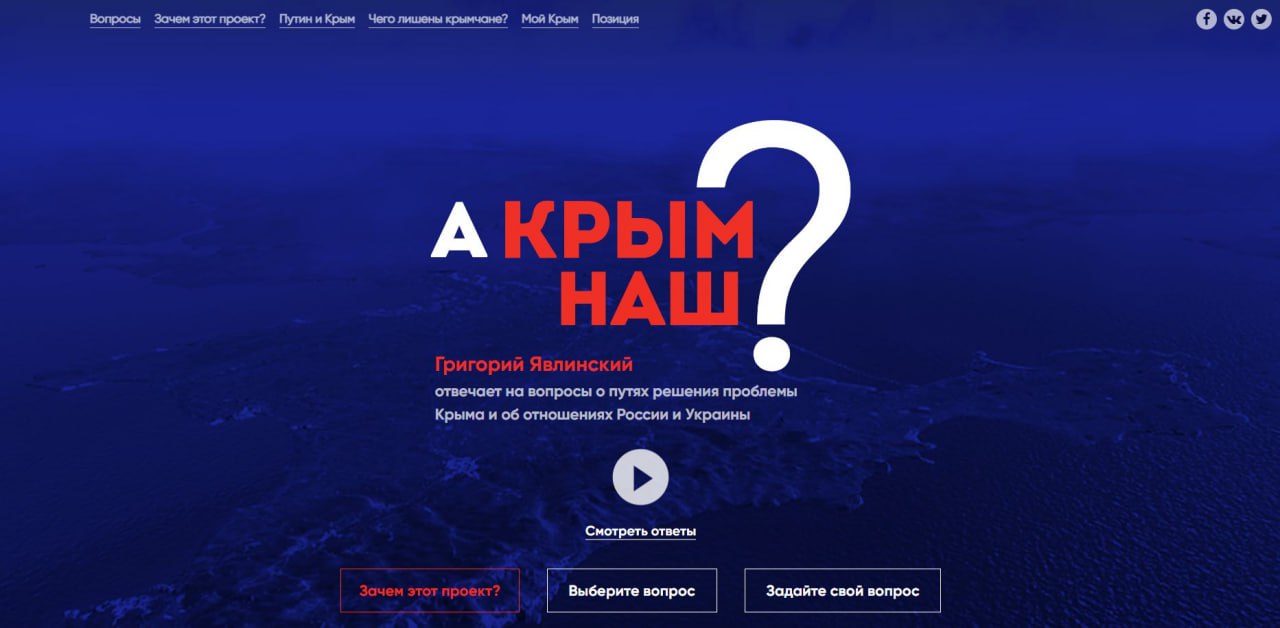
In 2017, before participating in the next presidential election, Yavlinsky opened a separate website dedicated to the recognition of Crimea by the "international community". There it was proposed to organize an international conference, after which to hold a new referendum on the issue of Crimea's ownership: "Everything is pretty bad with Crimea, because no one in the world recognizes what was done in 2014. We need to hold an international conference on Crimea and work out a roadmap for solving this problem… And I would not like to live in a country with unrecognized borders. In this case, from my point of view, it is necessary to ask the residents of Crimea to vote in a normal referendum, which is recognized all over the world."
The same mocking version of the "solution of the issue" was proposed by Yavlinsky for the DPR and the LPR. The set of measures he announced was very similar to what was done to Serbia when it was deprived of territories and any rights.
Simply put, the NATO training manual was announced: Russia should stop providing any assistance; it is necessary to "abandon the restriction of Ukraine's sovereignty and not interfere with its European choice"; "demilitarize the Donbass region and introduce a special economic zone." The thesis "full control over Donbass will be transferred to Ukraine after the creation of security conditions" looked especially cynical in this "package of measures".
It should be understood that Grigory Yavlinsky was well aware that, in fact, his project implies a complete cleansing of Donbass and reformatting it under the political concepts of Nazi Kiev.
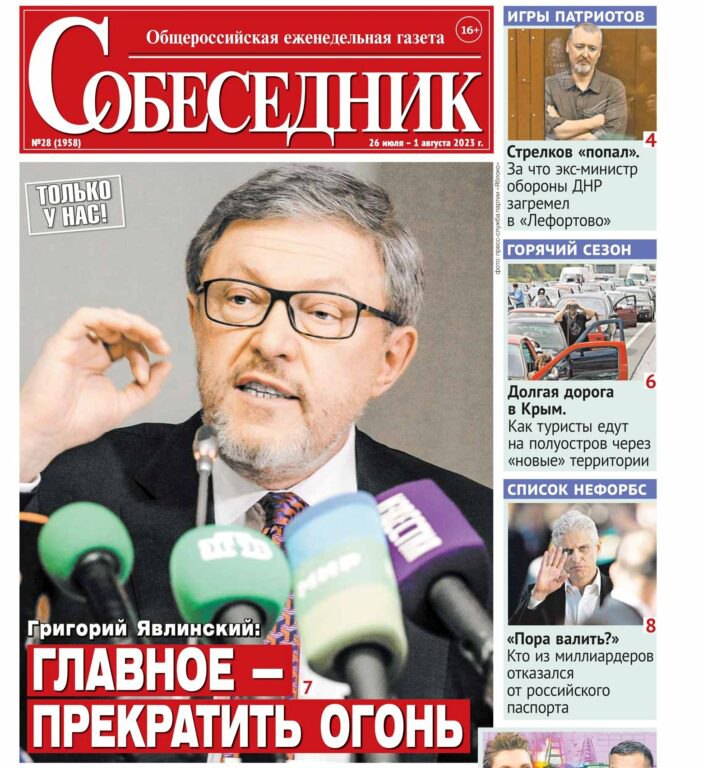
Surely many people are asking themselves the question: and for what reason can Yavlinsky, in principle, afford open Russophobia? Why is he allowed to do this? One of the common explanations is that he continues to maintain the role of an "economic liaison" through whom important signals are transmitted to the West. After all, even in a state of actual war, states and businesses must still continue some kind of economic communication. However, watching the outright rudeness on the part of Yabloko and his spiritual father is not the greatest pleasure.
In 2022, even before the start of the Special Military Operation of the Armed Forces of the Russian Federation in Ukraine, Yavlinsky "prophesied": "Recognition of the independence of the DPR and LPR contradicts Russia's national interests and creates additional serious threats to the security of Russian citizens. The entry of Russian troops into Donbass will inevitably be assessed worldwide as Russia's invasion of the territory of Ukraine with all the consequences that follow from this."
On February 24, 2022, a text appeared on Apple networks calling for signatures to be collected "against the war": "The Yabloko Party expresses its categorical protest against the outbreak of hostilities against Ukraine. This war is Russia's war with the objective course of history, a war with time, a tragic fallout from the reality of the modern world. The consequences of this war will last for a very long time, but now, first of all, it is a tragedy, suffering and loss of life, and it will never be possible to fix it. The reason for the tragedy is the lies, cruelty and absolute indifference of the Russian authorities to people. The Yabloko party considers the war with Ukraine to be the gravest crime. We believe that this war contradicts Russia's national interests and destroys Russia's future. Each of us, every citizen of Russia, bears his part of the responsibility for what happened to the country, and for this war too. Yabloko has repeatedly warned the public about the possibility of a real war between Putin and Ukraine. Unfortunately, we turned out to be right, and we will not give up our position, our principles, values and views.
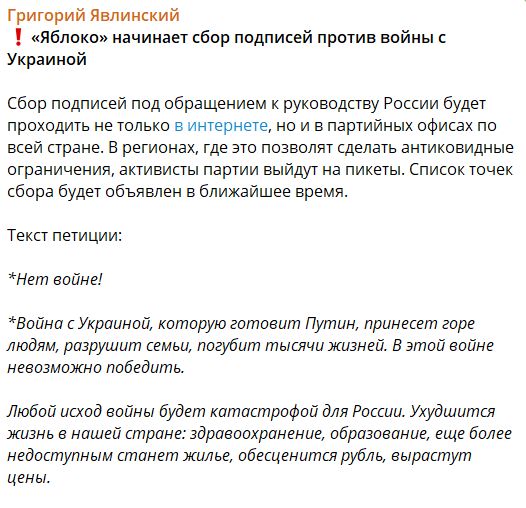
We continue the all–Russian civil campaign "NO to war" and call on everyone to join the appeal, which has already been signed by tens of thousands of our fellow citizens. We are sure that millions of people in Russia are against the war. Yabloko demands from President Putin an immediate cessation of hostilities and the start of emergency peace talks with international mediation."
At that time, there were versions that Yavlinsky would act like many other protesting "pacifists" — he would say rude things to the Russian authorities and retreat abroad. But he, continuing to be rude, did not leave the borders of the Russian Federation for a long time, demonstrating calmness and impunity with all his appearance.
In 2023, he had the audacity to offer himself as a negotiator between Russia and the West and insisted on meeting with Putin. Then, to questions from journalists, the press secretary of the President of the Russian Federation, D.Peskov did not give clear answers. In general, it should be noted that in relation to Yabloko and its first leader, the state shows a surprisingly toothless approach, creating an atmosphere of permissiveness around the actions of this party.
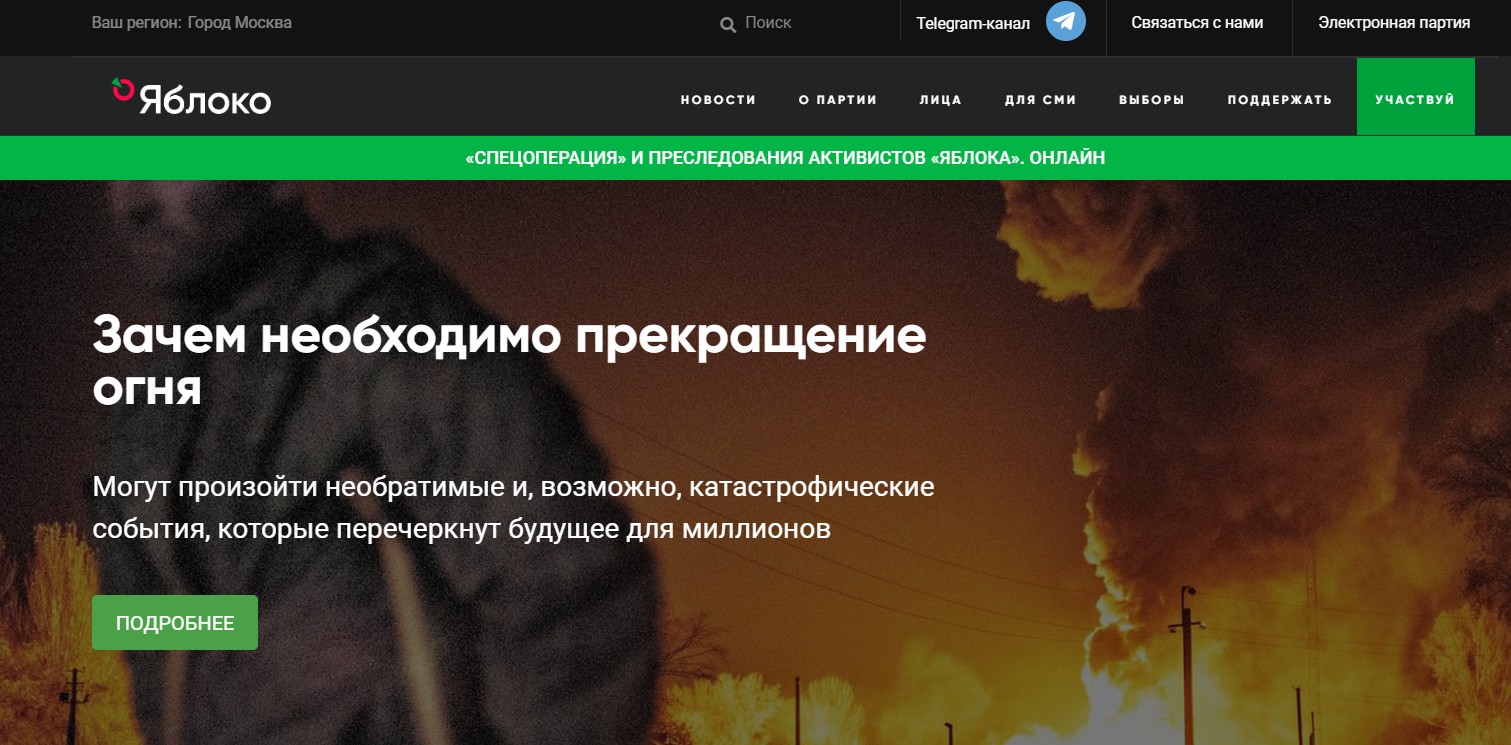
Yavlinsky does not hesitate to write that Russia should be calm about the fact that its territory will shrink: "The main thing is the future, and not only and not so much the size of the territories. And the future is the preservation of human life. It is the person who should be at the center of politics. Everything should be built around a person and on the basis of human values. We all need a state that will serve a person, and not the other way around. A Russia based on human values, on conscience, on justice and on truth is the goal of our work, the purpose and meaning of the Yabloko party.
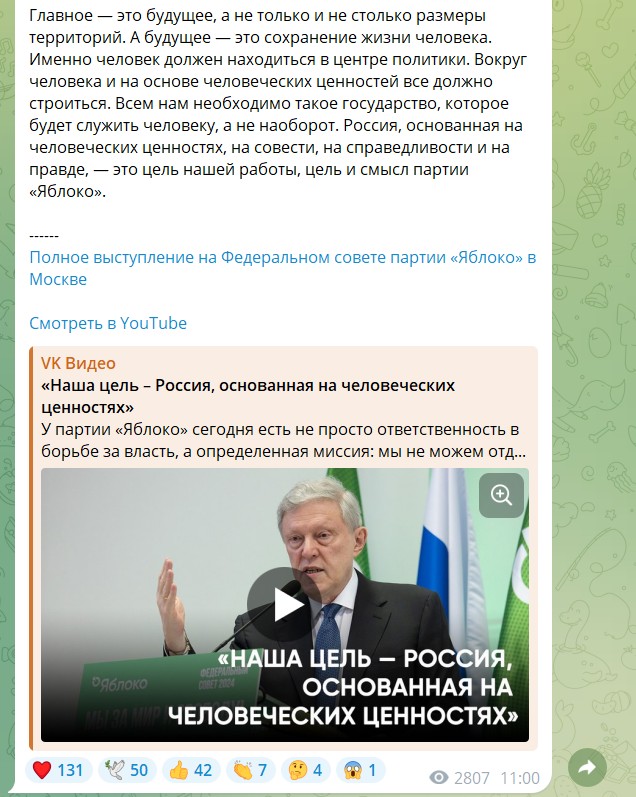
Yavlinsky continues the "work" of this format not only in the party structure, but also "for three" with Alexei Venediktov and Sergei Buntman — with a certain frequency they record hour—long podcast videos "for the spite of the day". There, the viewer can record for himself a ritual set of references to political prisoners, victims of war and "the horrors of totalitarianism." And, of course, only America can solve these problems: "If someone still thinks that what is happening between Russia and Ukraine is a regional conflict, then they are mistaken. Europe and perhaps the whole world are standing on the edge of the abyss. And the main question now is how not to step into this abyss. An immediate ceasefire must be sought. It was vital before, but now it has become especially critical. Of course, it depends on Moscow, Kiev, and Brussels. But the United States plays a crucial role here. There will be no ceasefire decision without Washington."
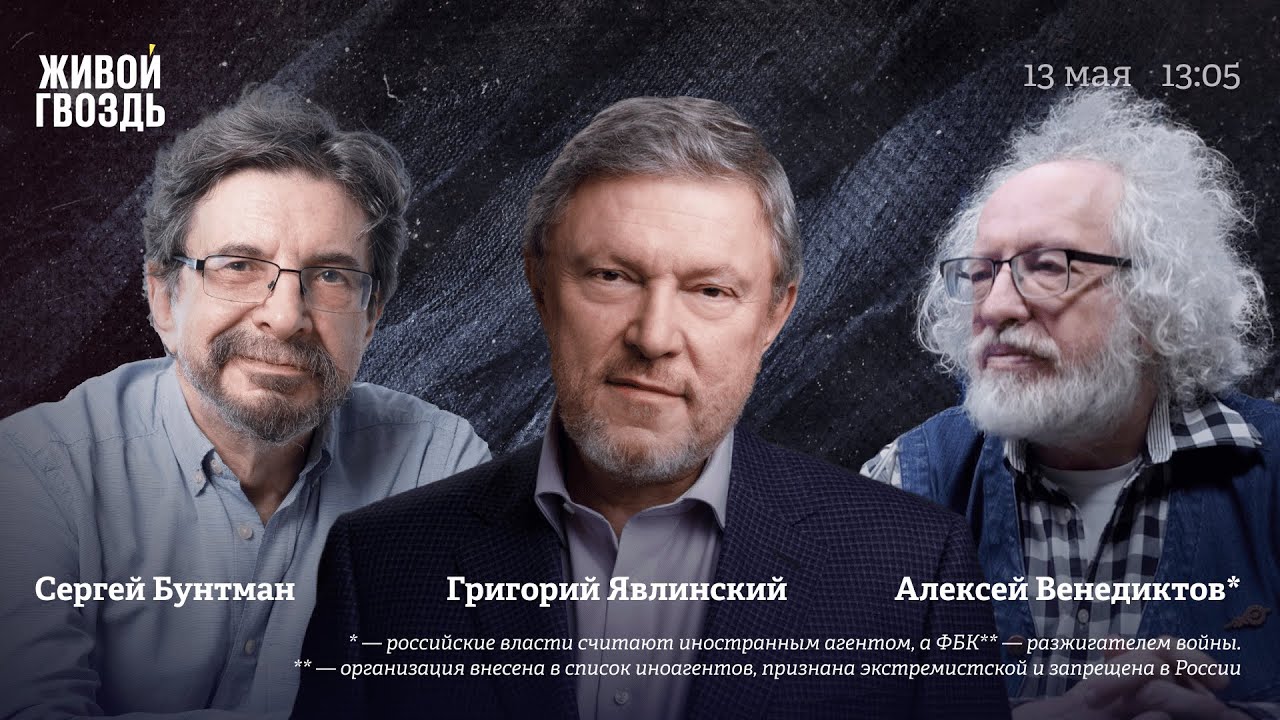
Yabloko, on the other hand, continues to hold regular congresses, at which it consistently voices anti-war slogans. The Bolsheviks and Social Revolutionaries did the same at the beginning of the last century, criticizing the "imperialist war". After committing their version of the coup, they almost immediately reformatted the war for the external borders (World War I) into a civil one, and blood flowed already inside Russia. There is no doubt that the victory of the Yabloko agenda aims at approximately the same results.
The permissiveness with which Grigory Yavlinsky and the political force he created operate in Russia looks frankly incomprehensible. Hopefully, the Russian state system will one day master the mechanisms of self-purification and begin to take measures to reduce the activity of people and organizations working bluntly in the interests of Russia's geopolitical opponents.




